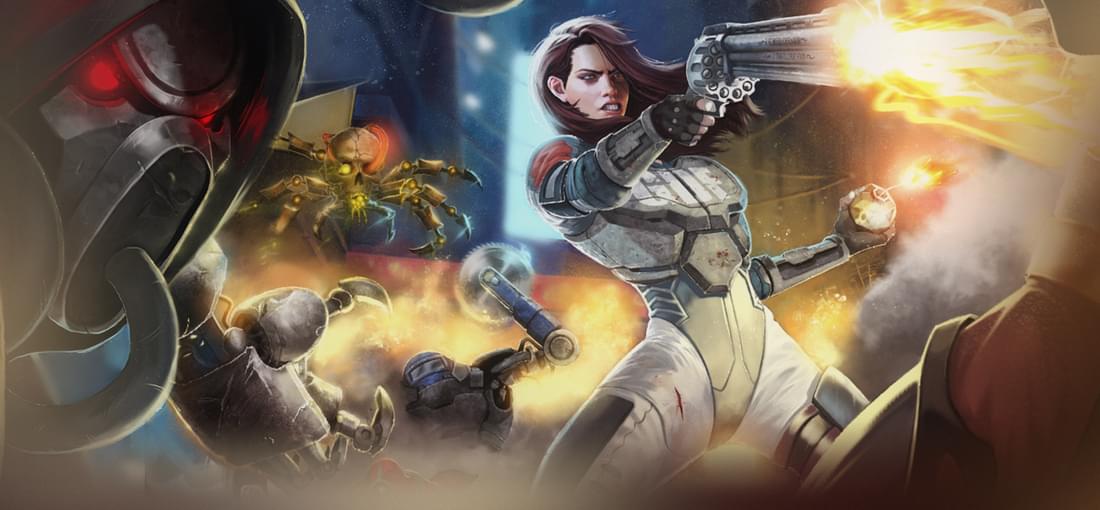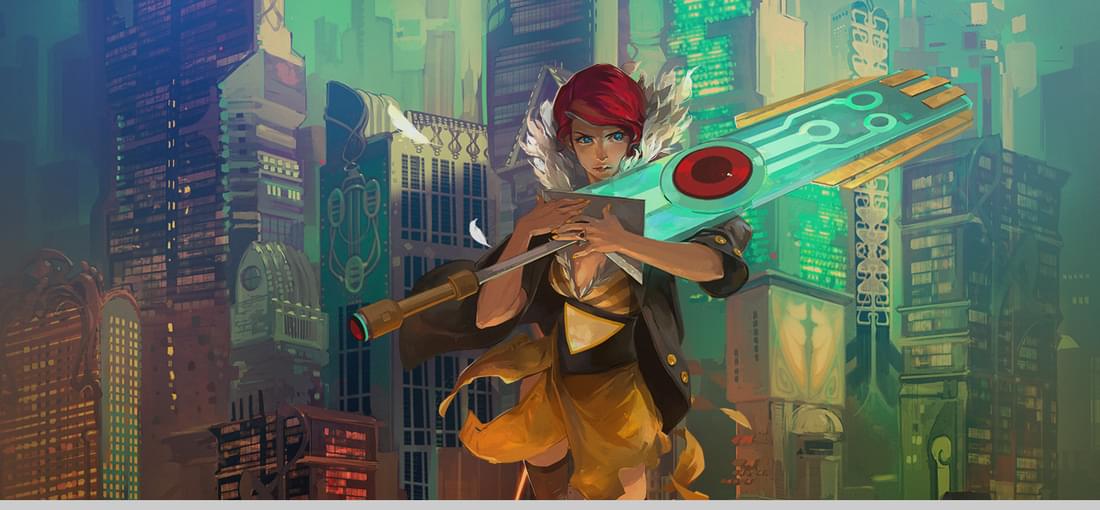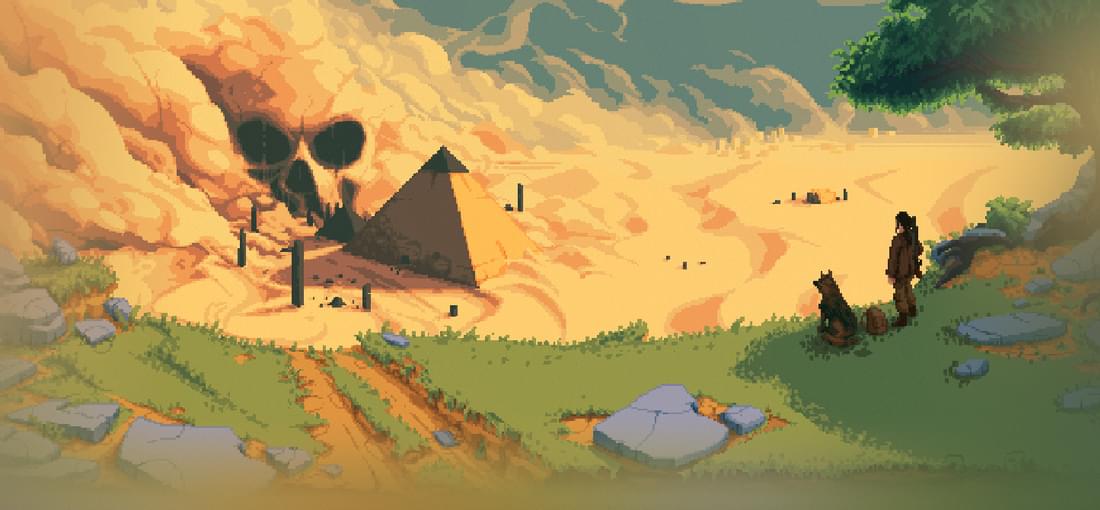


I never really played the old 90's shooters, and besides Zero Tolerance, I can't say I was ever much a fan. Even Doom, I would watch my cousins play and find some enjoyment, but only a modicum, and as such, I never harbored much nostalgia for those games. And yet here comes Ion Fury, a love letter to these old shooters, and cut from the same cloth, even being built in the same engine used for Duke Nukem 3D. This is a fast and frantic game; it looks old but with a modern charm and timeless design and aesthetic that it is downright anachronistic. You play as Shelly 'Bombshell' Harrison and your goal is to take out an evil scientist, Heskel. When it comes to story, this is the meat of it, but the gameplay and environment conveys a lot and always keeps Shelly moving. The level design is usually very good and the combat feels great. It reminded me of Doom 2016 in its pacing near the end, and this is a good thing. With a myriad of weapons (most of which I did end up using in various situations), you mow down a modest, but not too limited, selection of enemies. I really enjoyed the gameplay and the first few levels; the first few hours, really stand out to me. The music is good and at times very good. I wish it was more prominent. When it is at the forefront it really works. And I also really liked Shelly. Our protagonist is a lady Duke Nukem and she has cheesy one liners and childishly silly observations. There's a certain sincerity to this game, to how simple and straightforward it is. You move and shoot anything that moves. But the craft that went into this mechanic, to the meeting of these mechanics, is so deft and nuanced that it really becomes something more than it seems. This game stands distinct from the titans of FPS games I have played. It stands out from the Half Lifes and the BioShocks and even the Dooms of gaming. It is a little game but it brings with it the best of the past. My only real complaint is it is a bit long and tended to drag towards the end.

This is a small game with little fat, and very compelling. It is a top down, combat focused, action game with a bold hand drawn visual art style, and a bold, if slightly underused, soundtrack. This is cyberpunk in a digital dystopia and you play as Red, a singer who has been caught up in conspiracy and has had her voice taken from her. Here the game starts sans further explanation, but with a talking sword who is your companion: the Transistor. The plot is not anything novel or exciting, however its telling is done suitably well. The gameplay involves a mix of real time combat (think Diablo), where you have up to four skills to use as you maneuver Red, avoiding enemies and attacks, and a turn system where the game pauses, allowing you to set up abilities that Red will perform when unpaused. As enemies are usually numerous and strong, the meat of the combat is in the turn based mode. The game encourages changing up your abilities as these represent the citizens of Cloudbank (where the game takes place) who are trapped in the Transistor. By using and equipping these abilities in different ways you unlock more about these characters and get more of the story. This system is very effective and I always changed my loadout after every encounter. But the combat isn't all fluid. I found the real time with pause system a bit awkward. With the brunt of combat being the turn based mode, the real time mode was always relegated to me running and waiting for the turn meter to charge. After all, you can't even use your abilities while waiting for that meter to charge unless you have a specific ability equipped, and this hampered the flow of combat a bit. Nonetheless, the story and atmosphere, and Red as a protagonist, compelled me to finish this. It took ten hours with also doing optional challenges, and I enjoyed the ride. The visuals are nice, at times outstanding, and at story's end, I felt very satisfied. This is a small game and it achieves what it set out to do admirably.

Pathway is an adventure game not delivered in any bombastic, action packed, or cinematic way, but in small well paced vignettes; in small well animated scenes that evoke an adventurer's spirit. Its gameplay is simple and addicting. On an overworld map your goal is to reach some destination on the far end of the map. You do this by choosing which direction to head in, in the form of nodes, with each node being some random encounter. These encounters are often light RPG flavor texts that involve dialogue, or combat situations, with combat comprising the main meat of the gameplay. Turn based, combat takes the form of a cover shooter that is mechanically similar to the original XCom games. In it, you control your squad of adventurers and attempt to clear the map of hostiles using the environment as cover. Careful tactics is required throughout and combat often involved my adventurers shooting and then running away to some far off cover. Seeing them jump over walls and crouch behind barrels really captured the feeling of an adventure film's shootout, with bullets flying and the corpses piling up. When it comes to music, Pathway's soundtrack is very good. Reminiscent of John William's work on Indiana Jones, it melds with the game's great visuals in lush melodies that capture the acrid desert feeling and a true sense of adventure. And its art style is similarly lively and brightly colored. Dynamic shadows pop under moody lights giving depth to simple scenes, and everything is well animated so as to make these scenes feel involved and alive. Its pacing makes it feel more like a novella than a long novel. With encounters and taking on average less than ten minutes (at least on easier adventures), the game feels more pick up and play than a deep and involved RPG or roguelike, and gives it an airy feel. With addicting gameplay, well done art and music, its greatest strength remains in how well it evokes a feeling of adventure, how well it made me feel like Indiana Jones.